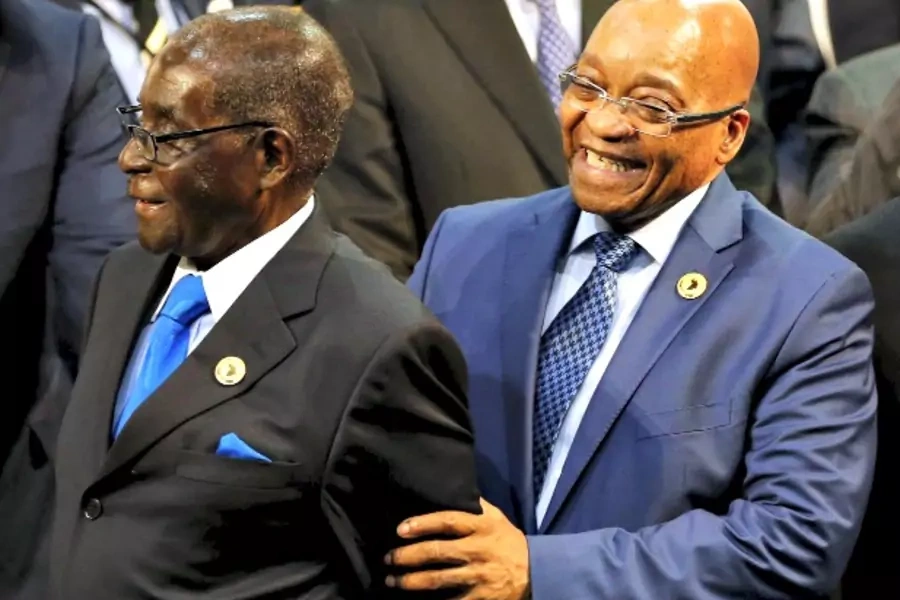From the perspective of the expectations of Nelson Mandela, South Africa has been treading water, if not worse, especially since the national elections of 2014. Economic growth remains an anemic 2 percent or less, thereby challenging Mandela’s assumption that poverty could be eliminated rapidly. Public concerns about corruption remain unaddressed. Parliament appears increasingly dysfunctional. Its procedures are under assault by Julius Malema’s Economic Freedom Fighters and stonewalling tactics by the Zuma government over corruption.
All the while, the Zuma government appears to be consolidating executive power at the expense of the other, theoretically co-equal branches of government. It has twice kept out the Dalai Lama, apparently to keep Beijing happy, while it welcomed Sudanese President Omar al-Bashir with a red carpet to keep the African Union happy. Though wanted by the International Criminal Court (ICC) for genocide, the Zuma government forestalled Bashir’s arrest, which was required by South African law and mandated by the judiciary, by assisting in his clandestine departure. Once one of the strongest supporters of the ICC, the ruling party, the African National Congress (ANC), now denounces it in neo-colonial terms similar to the denunciations by Zimbabwe’s Robert Mugabe and Kenya’s Uhuru Kenyatta.
More on:
Democracies often go through bad patches of governance. However, democratic institutions including an independent judiciary, civil society, and the rule of law provide a corrective mechanism. Up to now, all three have fulfilled this role in post-apartheid South Africa and have been a basis of optimism about the future of the country. The al-Bashir incident will be a test of the extent to which that optimistic conclusion is still valid.
The bottom line appears to be that the Zuma government broke South African law by failing to arrest Bashir and undermined the judiciary by failing to implement its ruling. The courts are now demanding that the Zuma government provide an explanation in seven days for how Bashir entered the country, was not arrested, and then left, though there was a court order requiring the government to ensure that he not leave. Civil organizations are saying that they will likely sue the government for contempt of court, but will delay filing until the government responds to the courts with its explanation. The opposition Democratic Alliance has roundly denounced the government’s behavior. It can be anticipated that it will raise the issue in the National Assembly. Meanwhile, the media, including social media, is expressing outrage over the Zuma government’s behavior.
Nothing that happens in South Africa now will result in Bashir’s arrest and handover to the ICC. But the courts and civil society may be able to hold the Zuma government accountable. However, if they fail to do so, or are successfully thwarted by Zuma and the ANC, South Africa will have moved away from democracy conducted according to the rule of law. The next week or so could be significant for South Africa’s future.
More on:
 Online Store
Online Store
